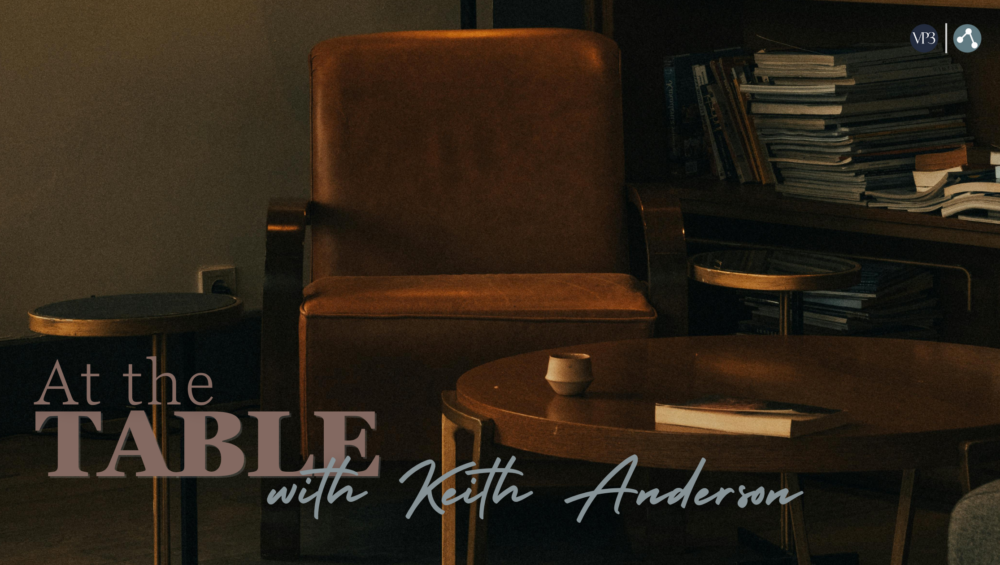How to Read the Bible Differently
Growing up, I became convinced I knew how to read the Bible: as content to ‘master.’ Its purpose seemed to be information, instruction, and data. I took an Old Testament class in college. Our exams primarily focused on recitation of the chronology of kings and prophets as if the primary purpose was to memorize a historical timeline.
Two people messed with that view and gave me a different understanding of the interaction between the Bible and faith: Jesus and Grandma McJunkin.
Jesus and Biblical Imagination
On occasion, Jesus made reference to the prophets, kings, and leaders of Ancient Israel. Mostly, he told stories called parables and offered what I like to call a biblical imagination. He wanted his listeners to enter the stories as characters and participants, not as critics. He wants them to participate as receptive listeners—not merely listeners struggling to comprehend.
Don’t read the Bible, then, enter with ears to hear and eyes to see.
A Life Shaped by the Bible
Grandma McJunkin became my grandma at my wedding to her granddaughter, Wendy McJunkin. By then, my own grandmothers had passed, and for more than 30 years, she adopted me as another of dozens of beloved grandchildren.
Her Bible was a revelation, no pun intended—it revealed how she read it and what it meant for her faith. It’s not much of an exaggeration to say that she had underlined nearly every sentence of every book in the Bible. She highlighted texts, stories, images, and keywords, except that almost all of it’s words became keywords for her.
She relished her time to engage the God of the Bible. I don’t believe she ever “read” it without a response of heart, mind, and soul.
What Jesus and Grandma McJunin taught me can be summarized in three key words:
Three Ways to Read the Bible
- Relational: The Bible, ever so simply, is dialogue with God. It is not primarily instruction but an invitation to a relationship in prayer, worship, and connection. My seminary Bible came with wide margins and contains hundreds of notes about content, information, and data. Grandma’s Bible was a narrative of her relationship with the God whose story invites dialogue.
- Experiential: Jesus sees our faith in our own rooted, grounded stories. I love mentoring so much because I sit in a front row seat to see what God is doing in the unfolding life experience of a mentee. We don’t look for abstract principles; we listen. We don’t look for historical timelines for their own sake; we listen. God’s voice did not speak only once in the beginning; it is present through scripture and alive in my own story and relationship with God.
- Conversational. This is our best word to describe our ultimate relationship with the Bible. Reading the Bible as conversation invites us into a response just as any good conversation does. It is not merely didactic. I have often thought of myself as a pastor-teacher. Well and good, but there are other descriptors now that come to my imagination:
- Pastor-listener
- Pastor-story-teller
- Pastor-question asker
- Pastor-conversationalist
Living a Lifelong Conversation with God
We come to faith in those ways—relationally, experientially, and conversationally. We learn about God as we engage God. We know God as we respond to God’s story and God’s words. We comprehend God as we see God at work in the narrative of our ever-so-ordinary lives.
Two things I learned from Grandma with absolute and total certainty. First, I was loved by her. Second, I was invited into a lifelong conversation with God—the same God whom she knew loved her and, through her, loved all who were privileged to call her Grandma.
Practices:
Don’t read the Bible; enter the stories with your whole heart, soul, and mind.
For Mentors: Invite your mentee to pick a familiar biblical story (e.g., the Prodigal Son). Instead of analyzing or teaching it, ask them to imagine themselves as one of the characters.
- Who do you identify with most in this moment?
- How does God speak to you through that role?
- What emotions or insights arise as you sit in the story?
Then, share your own reflection—not as an answer, but as part of a conversation. This shifts mentoring from information-giving to relational listening and discovery together.
_______________________________

Keith Anderson, D.Min., is a Faculty Associate for Spirituality and Vocation at VantagePoint3 and President Emeritus of Seattle School of Theology and Psychology. He is the author of several books, including his most recent: On Holy Ground: Your Story of Identity, Belonging and Sacred Purpose (Wipf & Stock, 2024). His other works include Reading Your Life’s Story (IVP, 2016), A Spirituality of Listening (IVP, 2016), and Spiritual Mentoring (IVP, 1999). In his writing, teaching, and mentoring, Keith seeks to set a table for people looking to enter the “amazing inner sanctuary of the soul” in the most ordinary and extraordinary moments of life.


1 Comment
There are different versions of this idea but it’s often attributed to David Paul Kirkpatrick or Samuel Wells…or maybe they both got it from Grandma McJunkin… when they say/write: “We don’t just read the Bible, we also let the Bible read us.” The transformational opportunity of engaging in the sacred text has always been lurking in the background of my own faith journey, but in recent years has moved to the forefront. In our age of quick information gathering, we can easily and quickly find content. What’s not so easily cornered is the transformation that comes from finding ourselves in the text. Thanks, Keith!